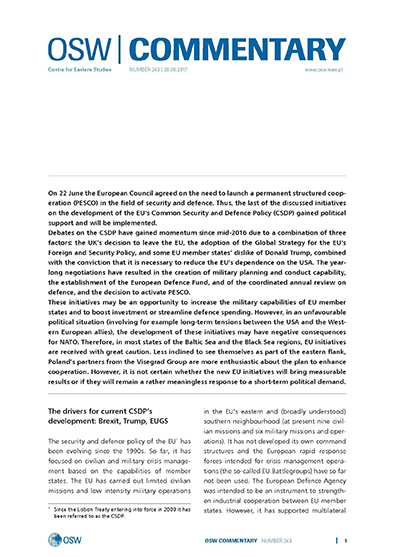Ukraine’s wartime nationalism
Ukraine’s wartime nationalism
Author(s): Tadeusz A. Olszański
Subject(s): Governance, Security and defense, Developing nations, Peace and Conflict Studies
Published by: OSW Ośrodek Studiów Wschodnich im. Marka Karpia
Keywords: Ukraine; nationalism
Summary/Abstract: The Euromaidan revolution and the war in Donbas that followed it have brought about deep changes in the way Ukrainian citizens think and have led to a rapid transformation of how people view the concept of national community. It began to be increasingly common for proponents of nationalism to refer to solidarity with the state instead of referring to the nation understood as an ethnic community, as they had previously done. This is due to the fact that an entire young generation has matured which takes the Ukrainian state for granted, but also because in the Russian-Ukrainian conflict most Russian-speaking citizens of Ukraine have opted for Ukraine.The war with Russia, which has now been ongoing for over a year, has led to a significant radicalisation of society’s attitudes and to attempts to seek models of military actions from the past that could serve as reference points in contemporary thinking. In Ukraine, the main, if not the only clear-cut model of this type of action, has been the story taught in schools involving fighting carried out by the Ukrainian Insurgent Army (UPA) in 1943–1952 (the narrative omits the crimes perpetrated by this formation—not only those against ethnic Poles). One consequence of this has been the currently observed wide-scale adoption of OUN-UPA symbols including by groups dominated by Russian-speaking residents of central and eastern Ukraine. This, however, is not accompanied by the adoption of the ideology of these historical organisations. Even when activists and columnists refer directly to Stepan Bandera, his actual views remain largely unknown. A new phenomenon has emerged which so far has been of marginal importance, but which has large potential to develop: neo-Nazism which refers to contemporary European neo-Nazism instead of Banderite traditions.
Series: OSW Commentary
- Page Count: 10
- Publication Year: 2015
- Language: English
- Content File-PDF

